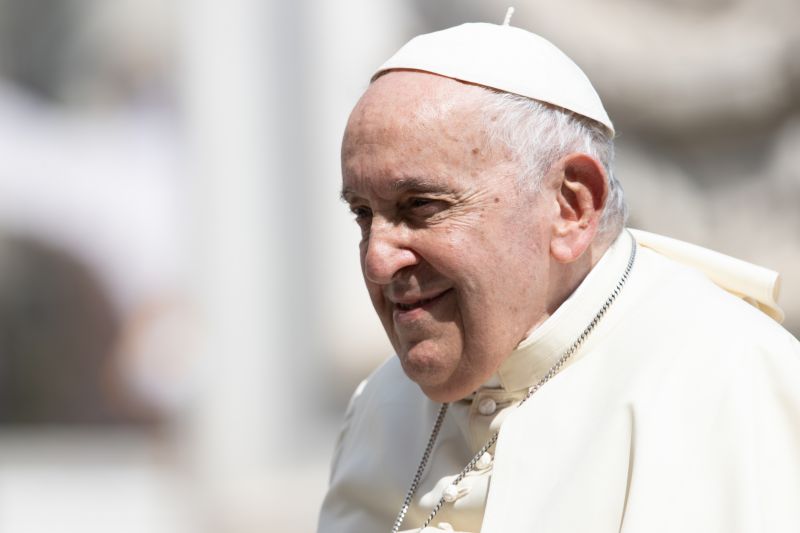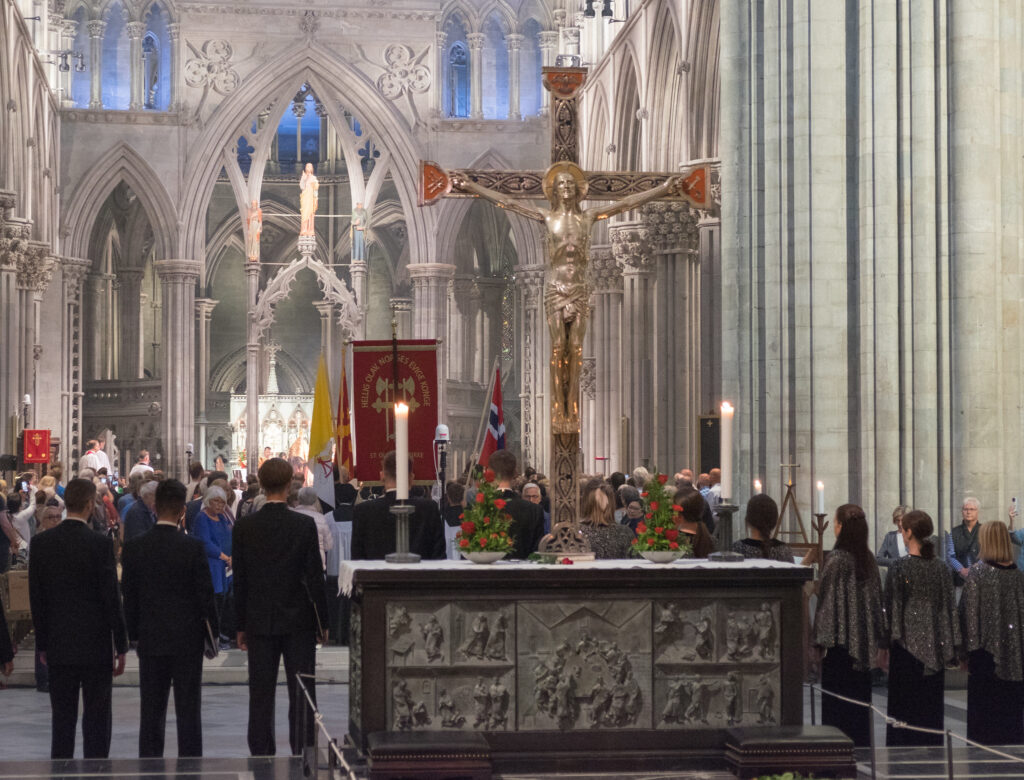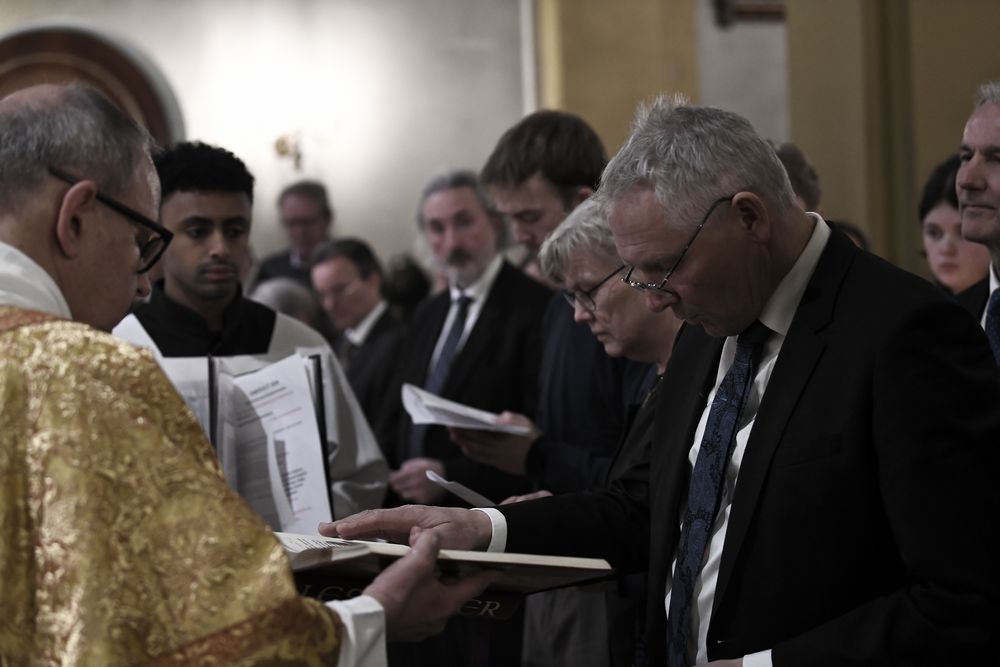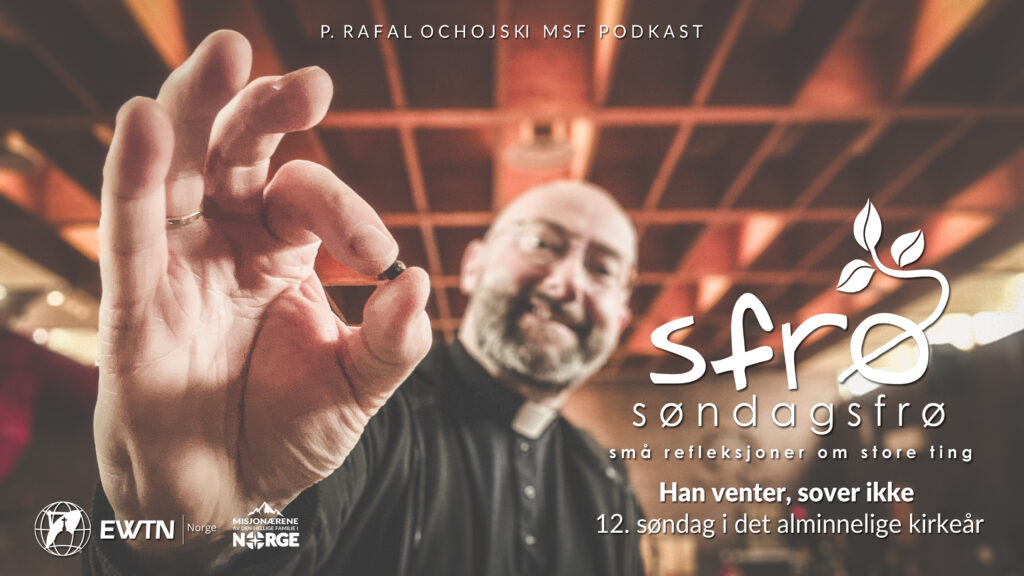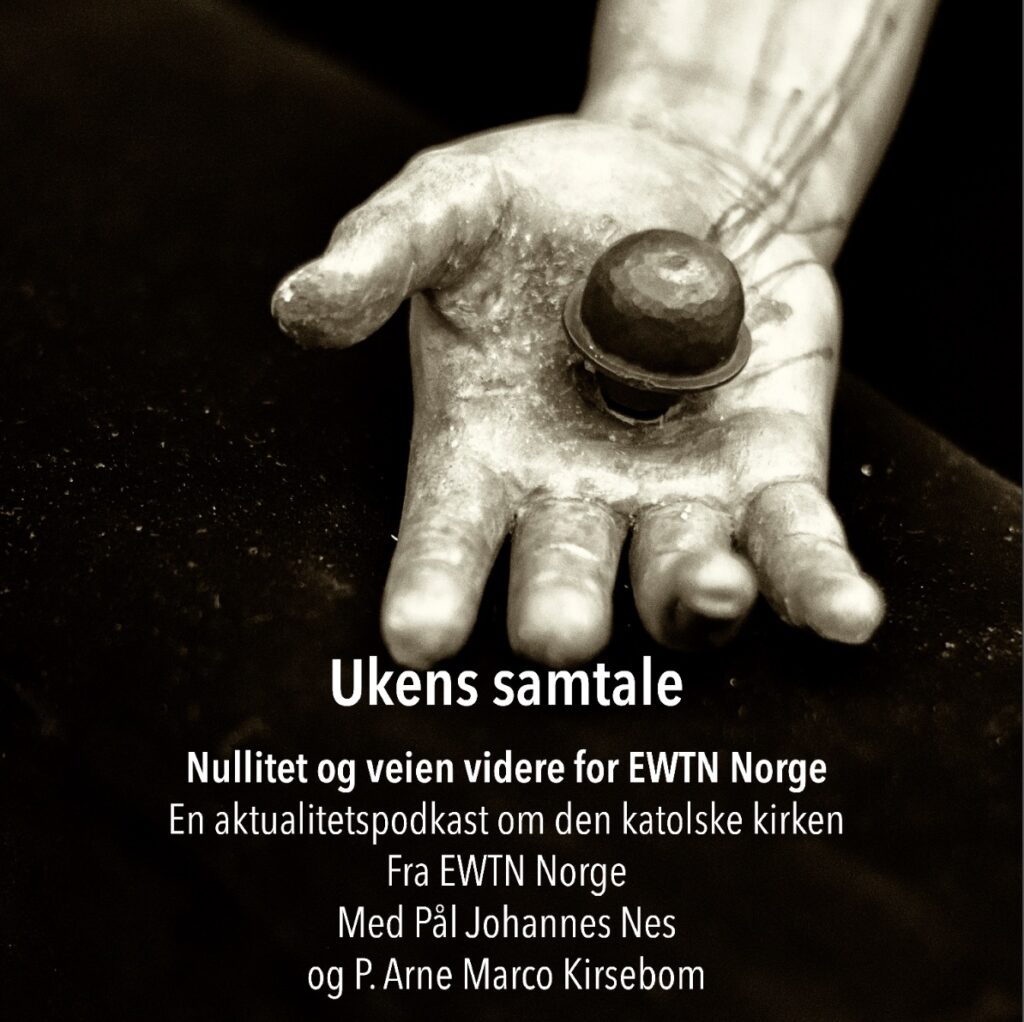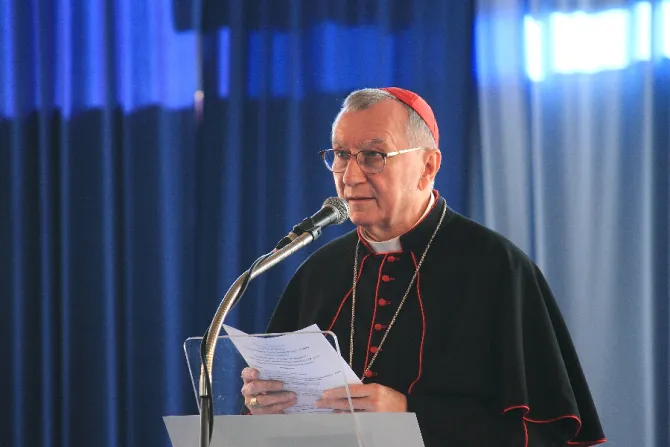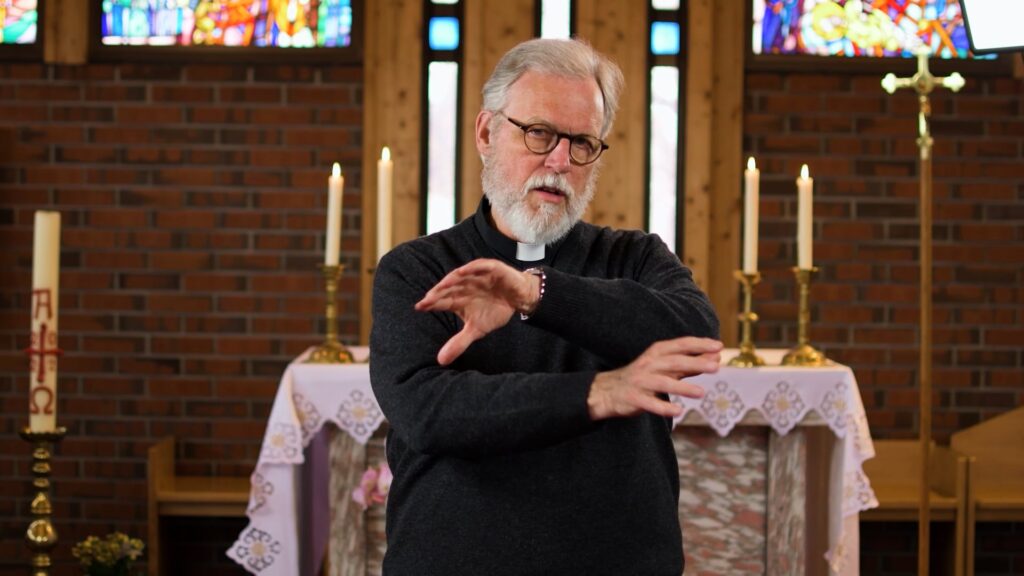Vatican City, Jul 1, 2023 / 13:22 pm (CNA).
The announcement on July 1 that Pope Francis has named Archbishop Víctor Manuel Fernández to lead the Dicastery for the Doctrine of the Faith was accompanied by a letter the Holy Father addressed to the Argentine theologian.
While Fernández’s appointment came as a surprise to many, the pope’s letter also has attracted attention because of what it reveals about Francis’ vision for the dicastery, one of the most important and powerful offices in the Roman Curia.
The pope says in the letter that the dicastery at times has promoted pursuing “doctrinal errors” over “promoting theological knowledge.”
“What I expect from you is certainly something very different,” Francis said. “I ask you as prefect to dedicate your personal commitment in a more direct way to the main purpose of the dicastery, which is ‘guarding the faith.’”
Quoting from his first apostolic exhortation Evangelii Gaudium, which Fernández reportedly helped to draft, Pope Francis emphasizes that the Church grows “‘in her interpretation of the revealed word and in her understanding of truth’ without this implying the imposition of a single way of expressing it.”
The pope said that differing “currents of thought in philosophy, theology, and pastoral practice, if open to being reconciled by the Spirit in respect and love, can enable the Church to grow.”
“It is good that your task expresses that the Church ‘encourages the charism of theologians and their scholarly efforts’ as long as they are not ‘content with a desk-bound theology’ with a ‘a cold and harsh logic that seeks to dominate everything.’”
The Holy See Press Office’s official English translation of the letter is below. Source material appears in footnotes beneath the letter.
Letter of the Holy Father to the new prefect of the Dicastery for the Doctrine of the Faith
To His Most Reverend Excellency
Archbishop Víctor Manuel Fernández
Vatican City, 1 July 2023
Dear Brother,
As the new prefect of the Dicastery for the Doctrine of the Faith, I entrust to you a task that I consider very valuable. Its central purpose is to guard the teaching that flows from the faith in order to “to give reasons for our hope, but not as an enemy who critiques and condemns” [1].
The Dicastery over which you will preside in other times came to use immoral methods. Those were times when, rather than promoting theological knowledge, possible doctrinal errors were pursued. What I expect from you is certainly something very different.
You have served as dean of the Faculty of Theology of Buenos Aires, president of the Argentinean Society of Theology and president of the Faith and Culture Commission of the Argentinean Episcopate, in all cases voted by your peers, who have thus valued your theological charisma. As rector of the Pontifical Catholic University of Argentina you encouraged a healthy integration of knowledge. On the other hand, you were parish priest of “Santa Teresita” and until now archbishop of La Plata, where you knew how to bring theological knowledge into dialogue with the life of the holy People of God.
Given that for disciplinary matters — especially related to the abuse of minors — a specific Section has recently been created with very competent professionals, I ask you as prefect to dedicate your personal commitment more directly to the main purpose of the Dicastery, which is “keeping the faith” [2].
In order not to limit the significance of this task, it should be added that it is a matter of “increasing the understanding and transmission of the faith in the service of evangelization, so that its light may be a criterion for understanding the meaning of existence, especially in the face of the questions posed by the progress of the sciences and the development of society” [3]. These issues, incorporated in a renewed proclamation of the Gospel message, “become tools of evangelization” [4] because they allow us to enter into conversation with “our present situation, which is in many ways unprecedented in the history of humanity” [5].
Moreover, you know that the Church “grow[s] in her interpretation of the revealed word and in her understanding of truth” [6] without this implying the imposition of a single way of expressing it. For “Differing currents of thought in philosophy, theology, and pastoral practice, if open to being reconciled by the Spirit in respect and love, can enable the Church to grow” [7]. This harmonious growth will preserve Christian doctrine more effectively than any control mechanism.
It is good that your task expresses that the Church “encourages the charism of theologians and their scholarly efforts” as long as they are not “content with a desk-bound theology” [8], with a “a cold and harsh logic that seeks to dominate everything” [9]. It will always be true that reality is superior to the idea. In this sense, we need theology to be attentive to a fundamental criterion: to consider that “all theological notions that ultimately call into question the very omnipotence of God, and his mercy in particular, are inadequate” [10]. We need a way of thinking which can convincingly present a God who loves, who forgives, who saves, who liberates, who promotes people and calls them to fraternal service.
This happens if “the message has to concentrate on the essentials, on what is most beautiful, most grand, most appealing and at the same time most necessary” [11]. You are well aware that there is a harmonious order among the truths of our message, and the greatest danger occurs when secondary issues end up overshadowing the central ones.
In the horizon of this richness, your task also implies a special care to verify that the documents of your own Dicastery and of the others have an adequate theological support, are coherent with the rich humus of the perennial teaching of the Church and at the same time take into account the recent Magisterium.
May the Blessed Virgin protect and watch over you in this new mission. Please do not cease to pray for me.
Fraternally,
FRANCIS
Footnotes
[1] Apostolic Exhortation Evangelii Gaudium (24 November 2013), 271.
[2] Motu proprio Fidem Servare (11 February 2022), Introduction.
[3] Ibid., 2.
[4] Apostolic Exhortation Evangelii Gaudium (24 November 2013), 132.
[5] Encyclical Letter Laudato Si’ (24 May 2015), 17.
[6] Apostolic Exhortation Evangelii Gaudium (24 November 2013), 40.
[7] Ibid.
[8] Apostolic Exhortation Evangelii Gaudium (24 November 2013), 133.
[9] Apostolic Exhortation Gaudete et Exsultate (19 March 2018), 39.
[10] International Theological Commission, “The Hope of Salvation for Infants who die without being baptized” (19 April 2007), 2.
[11] Apostolic Exhortation Evangelii Gaudium (24 November 2013), 35.

